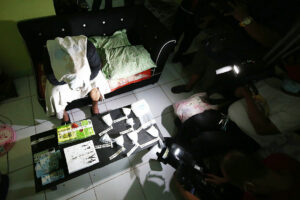THE UNITED Nations (UN) Human Rights Council should conduct its own probe of human rights abuses in the Philippines after the international community this week urged the Southeast Asian nation to do something about its human rights situation, according to a lawyer.
“This evaluation is crucial because it provides an opportunity for the international community to draw attention to, ensure accountability and prevent further human rights violations in the Philippines,” Josalee S. Deinla, secretary general of the National Union of Peoples’ Lawyers (NUPL), said in an e-mail.
More than 30 member-states of the UN Human Rights Council on Monday urged the Philippine government to do something about extralegal killings and human rights abuses in connection with ex-President Rodrigo R. Duterte’s anti-illegal drug campaign.
Representatives of various countries during a UN periodic review in Geneva also questioned the Philippines’ withdrawal from the International Criminal Court (ICC), which had started its own investigation of the drug war.
Ms. Deinla, who is in Geneva to monitor the UN review, said she was set to meet with UN officials on Wednesday to update them about issues in the country.
Justice Secretary Jesus Crispin C. Remulla on Monday told the UN council the government would “dispel the mistaken notion that there is a culture of impunity in our country”.
At least 25 cops have been charged with murder in connection with the drug war and it would punish more erring police officers, he added.
“The Philippine government, through Justice Secretary Remulla, reported their so-called accomplishments, which either distort the truth or do not reflect realities on the ground,” Ms. Deinla said.
During the UN review, the United States urged the Philippines to hold those responsible for human rights abuses during the drug war accountable. It also said government officials should stop tagging people as communists.
France said the government of President Ferdinand R. Marcos, Jr. should act on extralegal killings, while Canada sought the prosecution of perpetrators to give victims justice.
Ireland raised concern about allegations of murders and forced disappearances, while Belgium urged the government to do something about the killings of Filipino journalists.
“At this time, repression is continuing unabated and civic space remains constricted,” Ms. Deinla said.
She said human rights defenders, lawyers and journalists were still being disparaged and threatened under the Marcos government.
The presidential palace earlier said the state is committed to improve peace and order by eliminating illegal drugs.
The government is working with religious groups to persuade drug suspects to surrender, Acting Press Secretary Cheloy Velicaria-Garafil said in a statement on Tuesday, citing national police chief Rodolfo S. Azurin, Jr.
Human Rights Watch in September said drug war killings were still common and police impunity for human rights violations continue under the Marcos administration.
The UN Rights Committee has said the Philippines should comply with international human rights mechanisms and cooperate with the ICC’s drug war probe.
Philippine Solicitor General Menardo I. Guevara earlier said the Philippines would block a drug war investigation by the ICC and ensure suspects are tried under local courts.
At least 6,117 suspected drug dealers had been killed in police operations, according to data released by the Philippine government in June last year. Human rights groups estimate that as many as 30,000 suspects died. — John Victor D. Ordoñez
